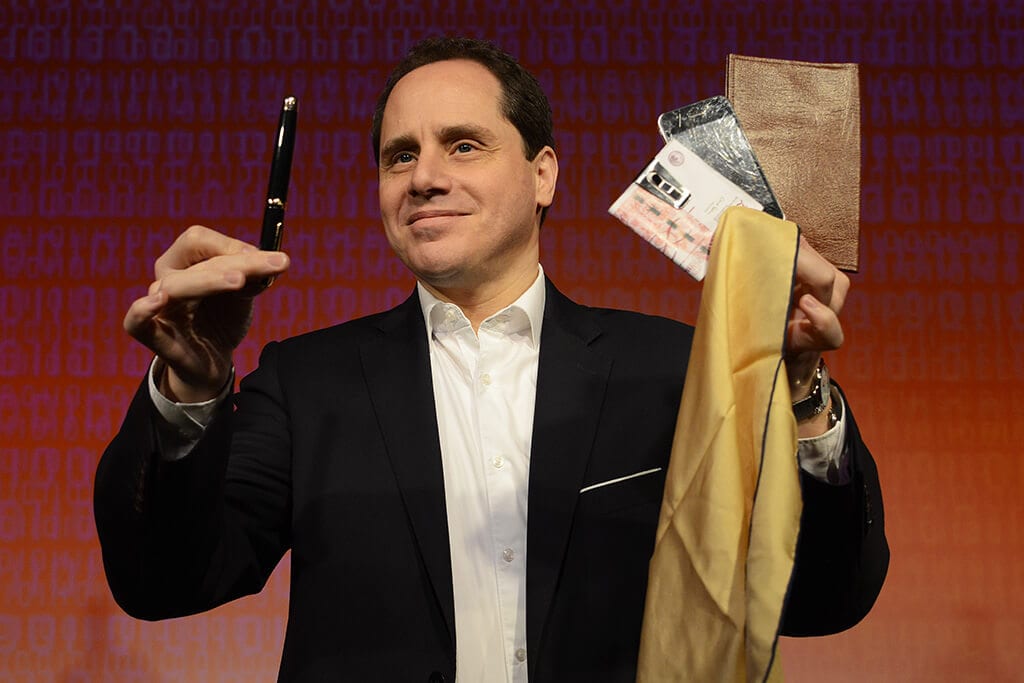Menier Chocolate Factory Theatre is probably the last place I would expect to watch an act like James Freedman’s. The seating makes good use of the space, and, judging by the sheer number of rows, the benches certainly provides for a wide audience. Yet sitting and waiting for 8 p.m. to roll around felt more like waiting for a lecture to begin than for a magician to take the stage.
However, magician may be a bit of a misnomer. The performance does not revolve around Mr. Freedman pulling any rabbits out of a silk top hat or sawing any helpless audience member in half, but the skills of a stage magician and a street pickpocket may as well be from the same school of thought. There is as well a certain lack of the stereotypical circus performance that colors almost every magic show. Rather, Freedman insists on referring to himself as an “honest pickpocket,” although whether he says this to combat his Google label or reassure audience members he’s not entirely a thief is debatable.
It definitely requires a certain set of skill to be able to grab a wallet out of a pocket without a victim feeling it – even more so when he is aware of that act and waiting for the theft. But if this is to be more of a learning experience (as the seminar-like seating makes it feel, rather than a display of skill) the flatness of the performance stage is not particularly suited to teaching. While the point of sleight-of-hand routines is that you aren’t supposed to see the actual trick, the presentation advertises Freedman’s back more than anything else. Even though Freedman’s quickness to joke with his audience members keeps the dialogue interesting, the staging of his performance provokes the craning of necks to catch a glimpse of where those pickpocket hands were going. He phrases the introduction to each segment as though everything is something he wants you to learn, to arm yourself with lest you become a victim yourself – yet you feel more as though you are attempting to watch the quickness of the act and discover how he filches so cleanly rather than learning how to protect yourself.
Perhaps saving the show is the skill of the lighting and sound technicians, who seamlessly sync lighting changes to Freedman’s dialogue to the point of fluidity. The segmentation joins with an almost narrative dialogue to the proceedings – one that chronologically feels very confused, especially when Freedman pulls out a chair to tell the story of why he wanted to learn the pick pocketing trade, a heroic sort of childhood tale of the rush of justice in dealing with bullies. Yet this plot has to be part of the trick as well: you cover the smaller action of stealing jingling car keys with the larger and louder action of coughing. In some ways the distraction of the confused timeline works in the same fashion: it covers the thefts themselves, leaving the audience stunned and laughing when he appears with the object they had previously seen tucked away in it’s proper place.
Overall, Freedman, the Man of Steal, is definitely skilled and well practiced. He has quite a number of years of experience on him as well (as his Tinkerbell Coat mannequin Fred can surely attest). He can teach you how pickpockets work with a flair that appeals to a wide audience, from lawyers and priests to students and children. If anything, if you want to know how your identity has been stolen, he’s the man to see. But overall the show feels routine and copied, as though there is no separation between watching the performance in person and watching it online.

